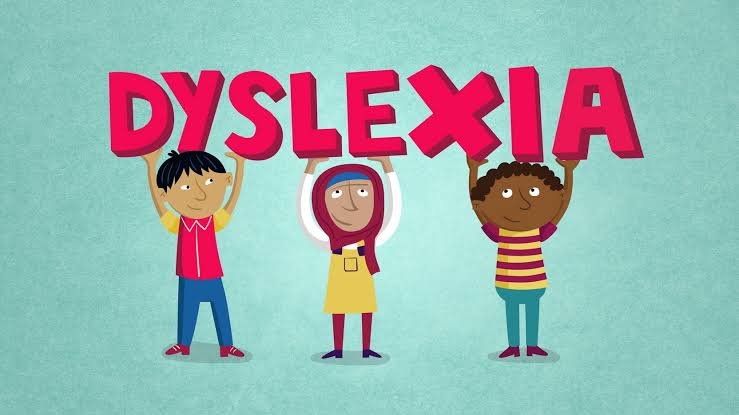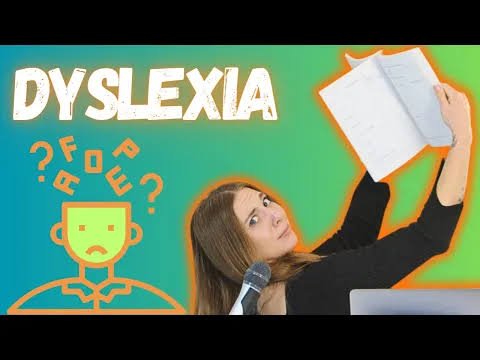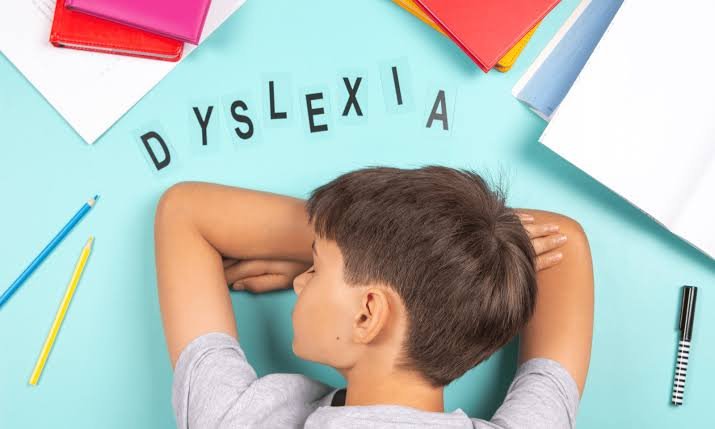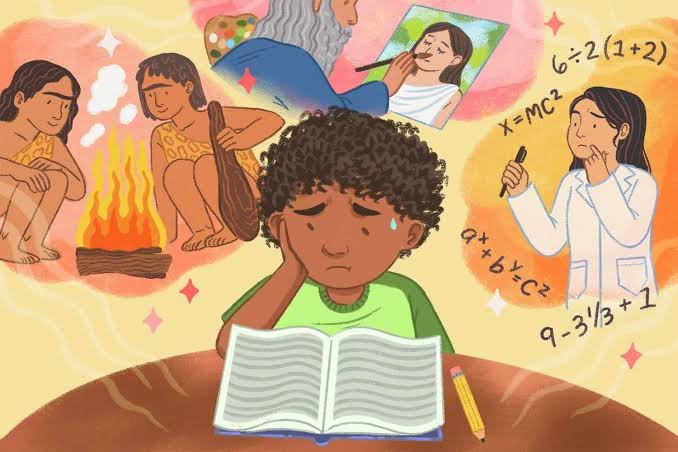Dyslexia: a word that holds both mystery and misunderstanding. It’s a condition that affects millions of people worldwide, yet remains shrouded in misconceptions. But fear not! In this blog post, we’re here to unravel the mysteries surrounding dyslexia and shed light on its symptoms, causes, and most importantly, the support available for those living with it.
So whether you’re an individual seeking answers or a concerned parent or friend looking to understand more about dyslexia, read on as we embark on this enlightening journey together. Let’s delve into the fascinating world of dyslexia and discover how individuals can overcome challenges while embracing their unique strengths!
Dyslexia

Dyslexia: a word that holds both mystery and misunderstanding. It’s a condition that affects millions of people worldwide, yet remains shrouded in misconceptions. Dyslexia is not simply a matter of being unable to read or write properly – it goes much deeper than that.
At its core, dyslexia is a neurodevelopmental disorder that impacts the way individuals process language. Reading fluency, spelling accuracy, and even speech can be affected by this condition. But here’s what many people don’t realize: dyslexia doesn’t mean someone lacks intelligence or potential for success.
In fact, many individuals with dyslexia possess unique strengths such as exceptional problem-solving skills, creativity, and out-of-the-box thinking. They often have an incredible ability to see things from multiple perspectives and think outside the box.
But living with dyslexia comes with its own set of challenges. Individuals may struggle with decoding words, recognizing letter sounds, sequencing information accurately, and organizing thoughts while writing – making academic tasks particularly demanding.
Fortunately, there are various strategies and interventions available to help manage these challenges effectively. With proper support from educators trained in teaching techniques tailored for those with dyslexia combined with technological tools like text-to-speech software or audiobooks – individuals can overcome obstacles and thrive academically.
It’s important to note that early intervention is crucial when it comes to dyslexia diagnosis. The sooner it is identified through comprehensive assessments conducted by educational professionals or psychologists specialized in learning disabilities – the sooner appropriate accommodations can be put in place so that students receive the support they need throughout their education journey.
While there may still be hurdles along the way for individuals living with dyslexia – understanding their unique strengths can empower them to navigate life confidently despite any challenges they face head-on!
Understanding the Symptoms of Dyslexia

Dyslexia is a learning disorder that affects individuals’ ability to read, spell, and process language. While it varies from person to person, there are some common symptoms associated with dyslexia.
One of the most noticeable signs is difficulty in reading and decoding words. People with dyslexia may struggle to sound out unfamiliar words or confuse letters that look similar. They may also have trouble recognizing familiar words quickly.
Another symptom is poor spelling skills. Individuals with dyslexia often make frequent spelling mistakes, even for simple words. They might mix up the order of letters or substitute certain letters with others.
Writing can be challenging too. Those with dyslexia may struggle to organize their thoughts on paper and find it hard to express themselves clearly through writing.
In addition, individuals with dyslexia often experience difficulties in phonological awareness – the ability to identify and manipulate sounds in spoken language. This can make learning new vocabulary or understanding rhyming patterns more difficult.
It’s important to note that having one or two of these symptoms does not necessarily mean someone has dyslexia; a professional evaluation is necessary for an accurate diagnosis.
If you suspect yourself or your child has dyslexic tendencies, seeking an assessment from an educational psychologist or other qualified professionals would be advisable as they can provide specific guidance and strategies tailored to individual needs.
Causes and Risk Factors of Dyslexia

The exact causes of dyslexia are still not fully understood, but researchers believe that it is likely a combination of genetic, neurological, and environmental factors. Studies have shown that dyslexia tends to run in families, suggesting a genetic component. Certain genes related to language processing and learning disabilities have been identified as potential contributors.
Neurologically, individuals with dyslexia may have differences in brain structure or function that affect their ability to process language efficiently. Brain imaging studies have revealed variations in the areas responsible for reading and phonological processing in people with dyslexia.
Environmental factors can also play a role in the development of dyslexia. Early exposure to risk factors such as low birth weight or premature birth, maternal smoking during pregnancy, or inadequate prenatal care may increase the likelihood of developing this learning disorder.
Additionally, certain educational practices or lack thereof can impact a child’s literacy development. Inadequate instruction in phonics (the relationship between sounds and letters) and limited access to effective reading interventions can contribute to difficulties experienced by individuals with dyslexia.
Understanding these causes and risk factors helps us recognize that dyslexia is not caused by laziness or lack of intelligence; rather, it is a neurobiological condition that requires appropriate support and intervention.
Diagnosis of Dyslexia
Recognizing and diagnosing dyslexia is an important step in providing appropriate support and intervention for individuals with the condition. While there is no single test that can definitively diagnose dyslexia, a comprehensive evaluation process can help identify the presence of specific learning difficulties.
The diagnosis of dyslexia typically involves gathering information from various sources, including parents or caregivers, teachers, and other professionals involved in the individual’s education. This may include reviewing school records, conducting interviews or questionnaires, and administering assessments to measure reading skills and cognitive abilities.
Assessments used in diagnosing dyslexia often focus on areas such as phonological awareness (the ability to recognize and manipulate sounds in words), decoding skills (the ability to sound out words), reading fluency, spelling, and comprehension. These evaluations help determine not only if an individual has dyslexia but also provide valuable insights into their strengths and weaknesses.
It’s important to note that while formal testing plays a crucial role in identifying dyslexia, it should be part of a broader assessment process that considers all available information about the individual’s educational history, performance levels across different subjects, social-emotional factors, and any other relevant considerations. Early diagnosis is key to implementing appropriate interventions that can help individuals with dyslexia develop effective coping strategies.
Treating and Managing Dyslexia
When it comes to dyslexia, early intervention is key. The treatment and management of dyslexia involve a multi-faceted approach that addresses the unique challenges faced by individuals with this learning disorder.
One of the primary components of treating dyslexia is specialized instruction. This can include targeted reading programs that focus on phonics, decoding skills, and comprehension strategies. These interventions are designed to help individuals with dyslexia develop strong reading skills and improve overall academic performance.
In addition to specialized instruction, assistive technology can also play a crucial role in managing dyslexia. Tools such as text-to-speech software, graphic organizers, and spell-checkers can help individuals with dyslexia overcome some of the difficulties they may face when it comes to reading, writing, and organizing their thoughts.
Another important aspect of managing dyslexia is providing support at home and in school. Educators should be knowledgeable about dyslexia and implement appropriate accommodations in the classroom setting. Parents can also provide ongoing encouragement, advocacy, and access additional resources or services if needed.
Furthermore, building self-esteem is essential for individuals with dyslexia. Helping them recognize their strengths outside of academics boosts confidence levels which enables them to navigate through challenges more effectively.
Treating and managing dyslexia requires a comprehensive approach that encompasses educational support tools like specialized instruction methods along with personalized strategies implemented at both home and school environments.
Support and Resources for Individuals with Dyslexia
When it comes to dyslexia, support and resources play a crucial role in helping individuals navigate their challenges and unlock their full potential. There are various avenues available that can provide assistance tailored specifically for people with dyslexia.
Education is key in empowering those with dyslexia. Schools often have special education programs or learning support services that offer strategies, accommodations, and tools to help students succeed. These may include modified assignments, extra time on tests, or assistive technology like text-to-speech software.
In addition to academic support, there are numerous organizations dedicated to supporting individuals with dyslexia. These groups provide valuable resources such as information about the condition, advocacy efforts, workshops or conferences for educators and parents alike.
Technology has also opened up new possibilities for individuals with dyslexia. There are now apps and software designed specifically for reading difficulties like dyslexia. These tools can make reading more accessible by providing features such as adjustable font sizes, color overlays to reduce visual stress, or highlighting the text as it is read aloud.
Furthermore, embracing one’s strengths is an essential aspect of managing dyslexia. Many successful individuals with dyslexia have found ways to leverage their unique abilities in areas such as creativity, problem-solving skills, or out-of-the-box thinking.
Overall, it’s important for those affected by dyslexia to know that they are not alone – there is a wealth of support available at every stage of life which can empower them to overcome challenges and thrive in all aspects of life.
Conclusion: Overcoming Challenges and Embracing Strengths
Dyslexia may present challenges, but it is important to remember that individuals with dyslexia have many unique strengths as well. By understanding and embracing these strengths, we can empower those with dyslexia to overcome their challenges and thrive.
One of the key strengths of individuals with dyslexia is their ability to think outside the box. They often possess exceptional problem-solving skills and are able to approach tasks from different perspectives. This creative thinking can lead to innovative solutions and ideas that others may not have considered.
Additionally, many people with dyslexia exhibit strong visual-spatial abilities. They excel in tasks such as puzzles, art, and design where they can visualize objects or concepts in their minds. This strength allows them to see patterns and connections that others may overlook.
Furthermore, individuals with dyslexia often demonstrate resilience and determination in the face of adversity. Despite struggling with reading or writing difficulties, they persevere and find ways to succeed academically or professionally. This resilience builds character and fosters a strong work ethic.
It is crucial for society to provide support and resources for individuals with dyslexia so they can fully develop their potential. By offering specialized education programs tailored to their needs, providing assistive technologies, promoting awareness among educators, employers, friends, and family members about accommodation strategies, it will help create an inclusive environment where everyone’s talents are valued regardless of their learning differences.
FAQ’s
Q: Can dyslexia be cured?
A: Dyslexia is a lifelong condition, but with the right support and interventions, individuals with dyslexia can learn strategies to manage their challenges and build on their strengths. It’s important to remember that dyslexia does not define a person’s intelligence or potential.
Q: Are there any famous people with dyslexia?
A: Yes, many successful individuals have been diagnosed with dyslexia, including actors such as Tom Cruise and Whoopi Goldberg, business magnate Richard Branson, and Nobel Prize-winning scientist Carol W. Greider. These examples serve as inspiration for anyone facing the challenges of dyslexia.
Q: How can I support someone with dyslexia?
A: There are several ways you can support someone with dyslexia. It’s essential to provide understanding and empathy rather than judgment or criticism. Encourage them to seek appropriate assessments and interventions if needed. Additionally, offering assistance in organizing tasks or providing alternative learning methods can be beneficial.




